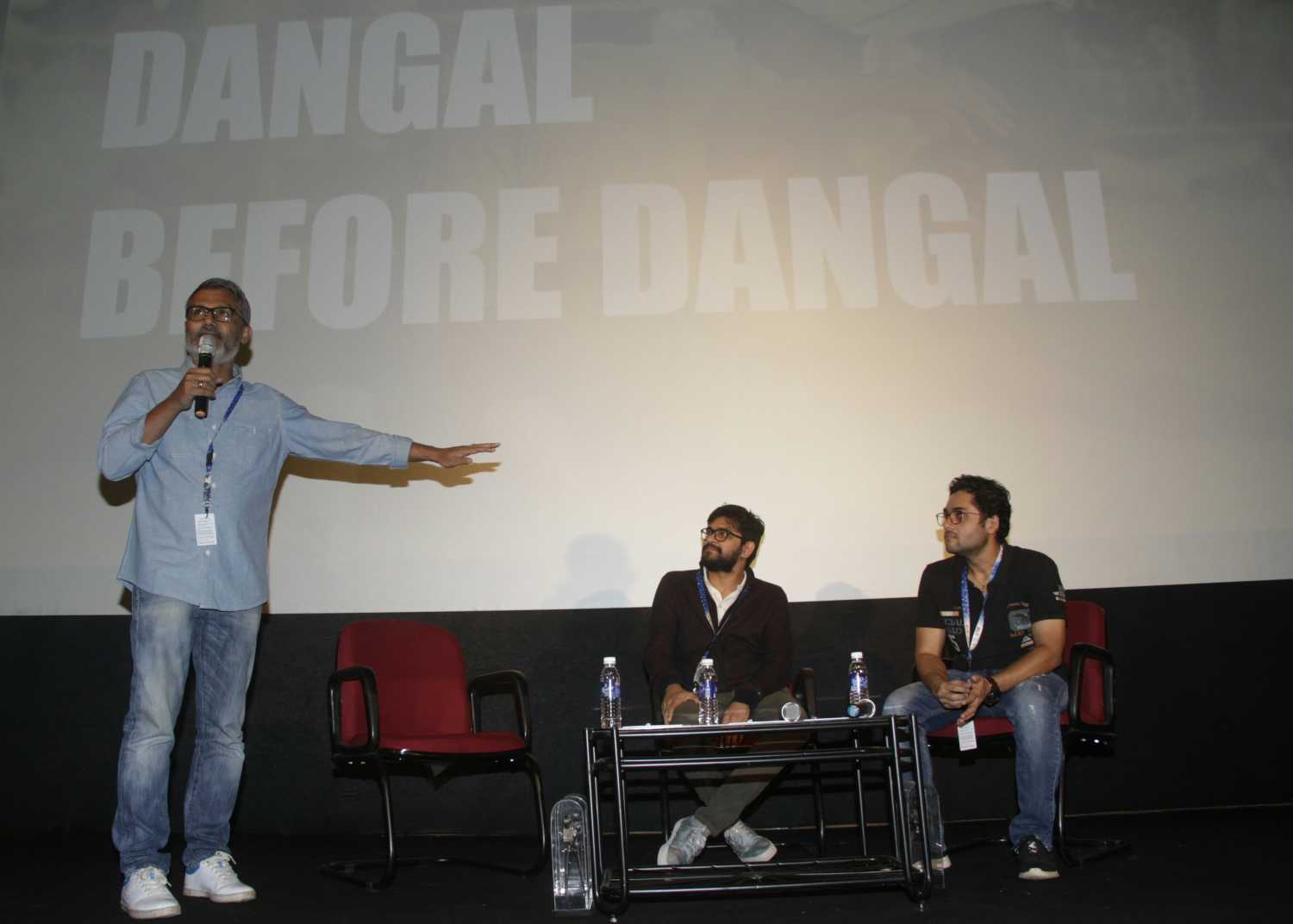Tiwari and two of his co-writers on Dangal spoke about the importance of discarding things that do not fit the overall idea and the use of humour, particularly if the subject matter is 'heavy'.
IFFI 2017: Writing is a very speculative process, says Dangal's Nitesh Tiwari
Panjim - 25 Nov 2017 1:28 IST
Updated : 18:30 IST


Sukhpreet Kahlon
If the road to success is paved with hard work and preparation, then the writers of Dangal (2016) certainly deserved every bit of their sweet success.
At a masterclass curated by Vani Tripathi, writer-director Nitesh Tiwari, with co-writers Piyush Gupta and Nikhil Mehrotra, spoke of the ‘dangal before Dangal’, recounting the painstaking creative process they went through while writing Hindi cinema's biggest blockbuster so far.
At the outset, Tiwari mentioned the contribution of the fourth writer in the team, Shreyas Jain, who could not attend the event. Defusing any expectation the audience may have had, he said the writers were not there to give “gyan” but just to share their process because, before writing the film, they had no idea they would be part of something that would be loved so much by audiences.
Speaking of their mindset while writing, Tiwari said, “We wrote fearlessly. When you have nothing to lose, you become fearless, so we wrote what we thought was right.”
At the same time, the audience was always their priority as they were acutely aware that they were working on a feature film and not a documentary on the Phogats.

Sharing a presentation on some of their key thoughts while writing, the filmmaker emphasized that it is important to discard things that do not fit with the overall idea. For instance, the team discussed several situations that had taken place in Mahavir Phogat's life but dropped them from the final script. “Real life does not pan out like a screenplay," Tiwari said, "so we had to drop things, change things, introduce things, but we never changed the DNA [of the story].”
One of the key points in the presentation was humour, or as the presentation point read: “If you’re going to make them cry, also make them laugh.” Tiwari pointed out that being a film with a 'heavy' subject, the writers had to be careful to add a layer of humour to keep viewers engaged. “Humour works a lot like Hajmola," Mehrotra quipped. "It helps you digest a lot of serious things.”
The team also talked about the importance of research. Gupta explained how several key scenes of the film were made possible by extensive research. This was echoed by Mehrotra who said research gives one the raw material to play with.
The Dangal team also shared the thought process behind the way the various characters were fleshed out. No character should be thought of as small, they said. They also spoke of their trepidation while conceptualizing certain scenes as they were worried how audiences would react to those moments. One such was the scene in which the father challenges the older daughter Geeta to a wrestling bout and loses.
The presentation offered some key points to aspiring writers. It emphasized the need to convey more through brief dialogues, 'juicing' out every scene by exploring various possibilities, always keeping the audience in mind and not ending the process with the final draft as several facets are added to the story while shooting.
The writers also spoke of the challenges of penning a real-life story. As Tiwari pointed out, “It’s not a story I have written, it’s a story god has written.” Still, certain angles had to be changed or refined to make it more cinematic and/or acceptable to audiences.
The masterclass was well attended with aspiring writers and students of cinema asking the crack team many questions about the craft of writing for cinema.
Related topics
IFFI



